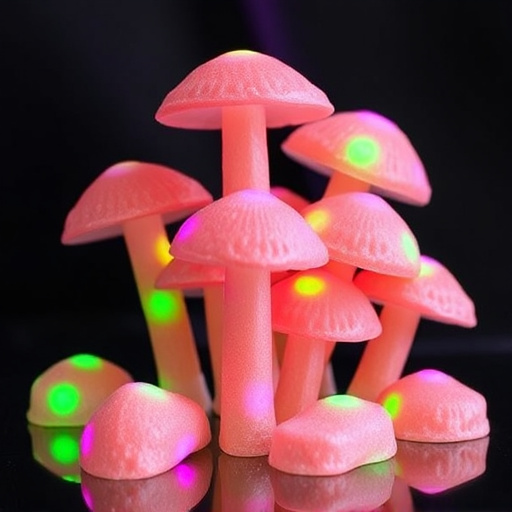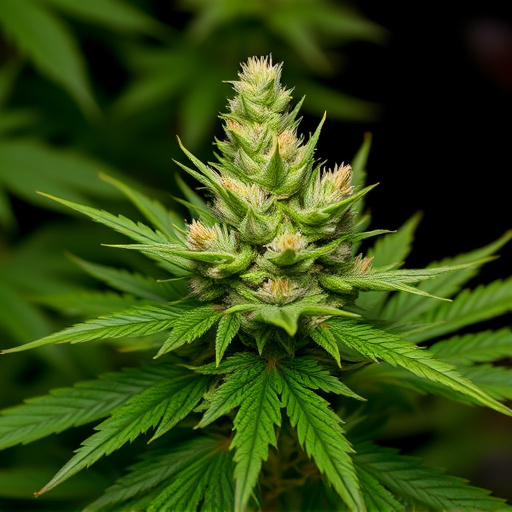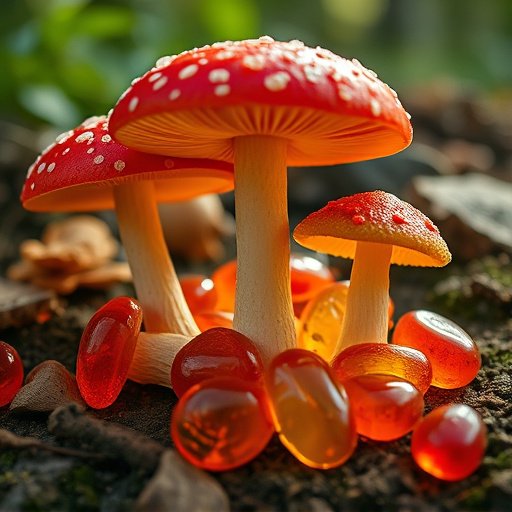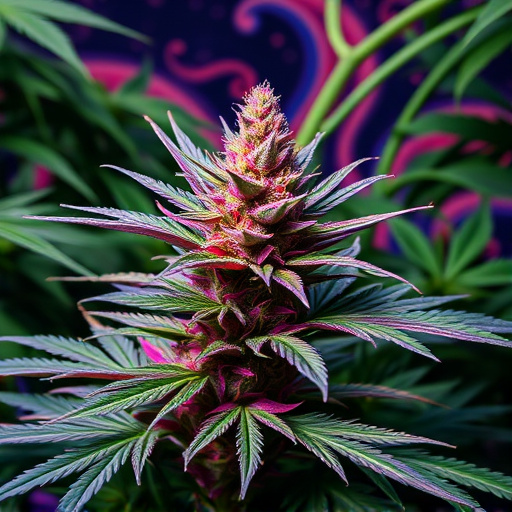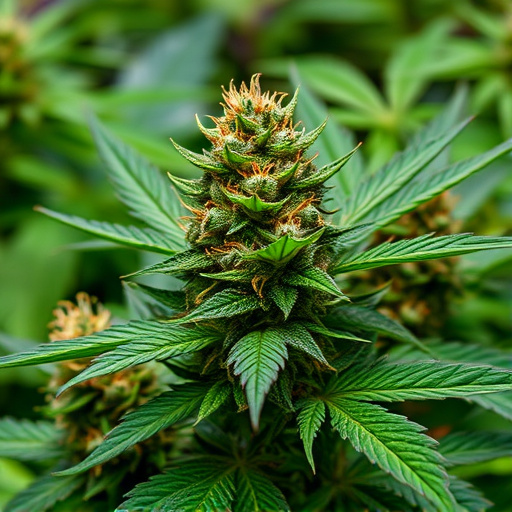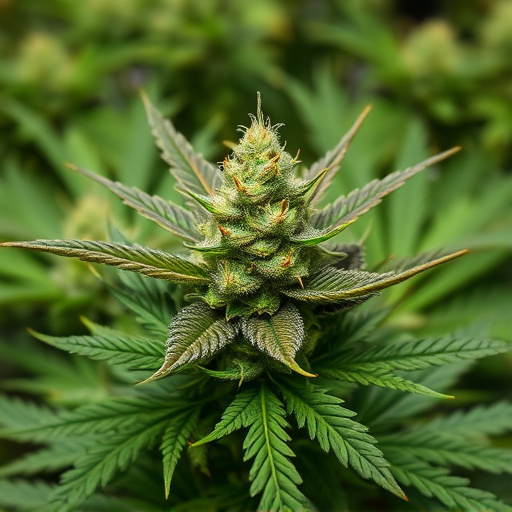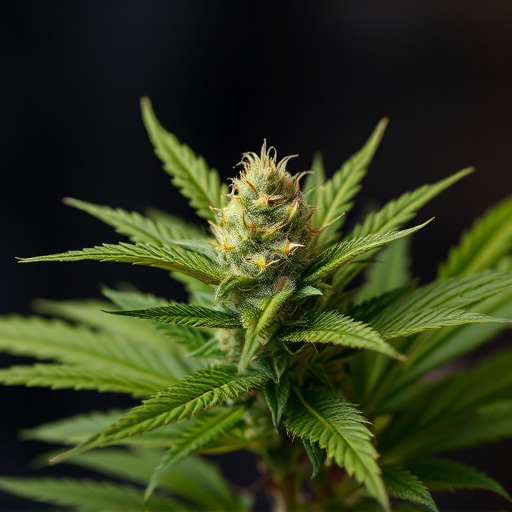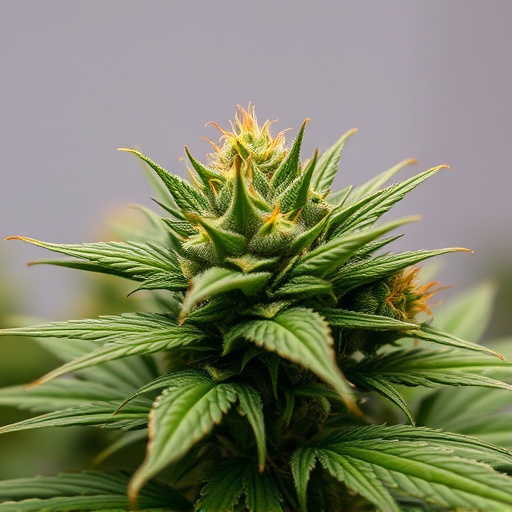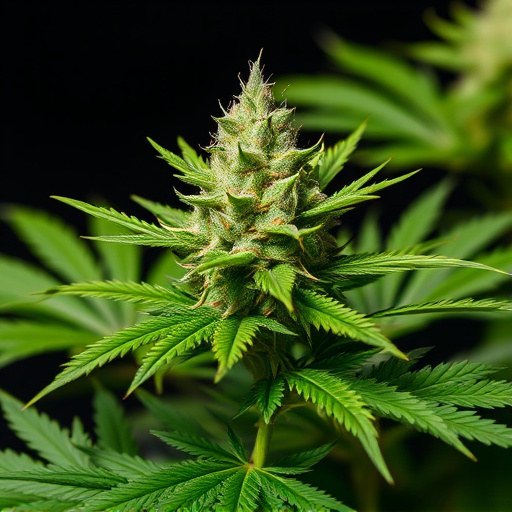High THC cannabis strains significantly impact dopamine and serotonin, the "feel-good" chemicals crucial for mood regulation, motivation, and pleasure. While these strains may offer therapeutic benefits, chronic use can disrupt neurotransmitter balance, leading to potential mental health risks like heightened anxiety or addiction. Understanding how high THC strains interact with dopamine and serotonin systems is vital for consumers and healthcare professionals navigating their use for treatment versus potential harms.
“Cannabis has long been a subject of interest due to its complex interaction with our brain’s neurotransmitters. This article explores how high THC cannabis strains specifically influence dopamine and serotonin, the key players in reward and mood regulation. By understanding these effects, we can uncover potential therapeutic benefits while also highlighting risks associated with cannabis use. We’ll dissect the science behind these interactions, offering insights into the impact of high THC strains on our brain chemistry.”
- Understanding Dopamine and Serotonin: The Neurotransmitters of Reward and Mood Regulation
- The Impact of High THC Cannabis Strains on Dopamine and Serotonin Systems
- Potential Therapeutic Benefits and Risks Associated with Cannabis and Its Effect on Neurotransmitters
Understanding Dopamine and Serotonin: The Neurotransmitters of Reward and Mood Regulation
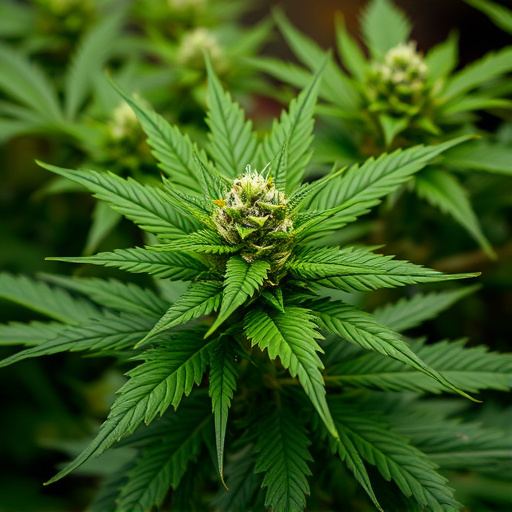
Dopamine and serotonin are two essential neurotransmitters that play pivotal roles in regulating mood, motivation, pleasure, and reward. Often referred to as the “feel-good” chemicals, they are deeply involved in our daily experiences and overall well-being. Understanding their functions is crucial when exploring the impact of high THC cannabis strains on the human brain.
Dopamine is famously associated with pleasure, motivation, and reinforcement of rewarding behaviors. It stimulates feelings of euphoria and drives us to seek out pleasurable activities. Serotonin, on the other hand, regulates mood, appetite, sleep, and even pain perception. Imbalances in these neurotransmitters have been linked to various mental health conditions, making their interaction with substances like cannabis a topic of intense interest, especially when considering the growing popularity of high THC cannabis strains.
The Impact of High THC Cannabis Strains on Dopamine and Serotonin Systems
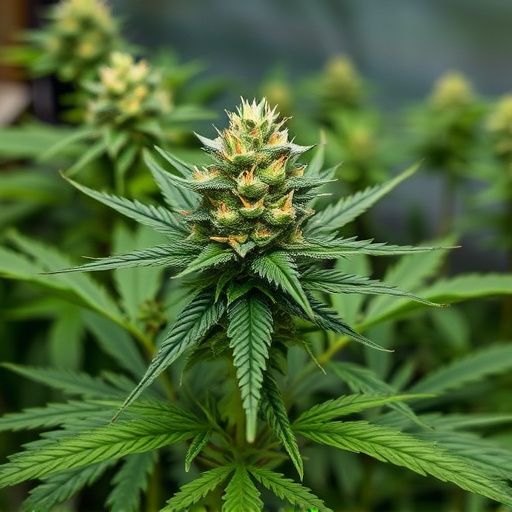
High THC cannabis strains have been shown to significantly impact the dopamine and serotonin systems in the brain. THC, or tetrahydrocannabinol, is the primary psychoactive compound found in cannabis, and it binds directly to cannabinoid receptors in the brain that regulate mood, pleasure, and reward. When consumed, high THC strains can lead to an initial surge of dopamine release, often resulting in feelings of euphoria and increased motivation. This rapid increase can temporarily enhance these neurotransmitters’ activity, but it also disrupts the balance within the brain’s endocannabinoid system.
Over time, chronic use of high THC cannabis may disrupt the normal regulation of dopamine and serotonin. Research suggests that it can alter the sensitivity of these receptors, potentially leading to changes in mood, motivation, and reward-seeking behaviors. This disruption could contribute to issues like dependence or even play a role in the development of mental health disorders, especially in individuals predisposed to such conditions. Therefore, understanding the effects of high THC strains is crucial for both consumers and healthcare professionals alike.
Potential Therapeutic Benefits and Risks Associated with Cannabis and Its Effect on Neurotransmitters
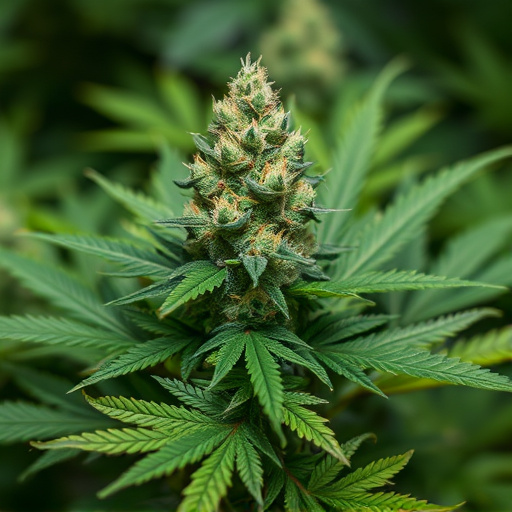
Cannabis, particularly high THC cannabis strains, has gained attention for its potential therapeutic benefits and risks, primarily due to its effects on neurotransmitters like dopamine and serotonin. On one hand, studies suggest that cannabis can help alleviate symptoms of conditions such as chronic pain, nausea, and anxiety—disorders often linked to dysregulation of these brain chemicals. The activation of cannabinoid receptors in the brain by THC has shown promise in modulating mood and reducing stress, with some users reporting improvements in overall well-being and quality of life.
However, there are also potential risks associated with regular cannabis use. High THC strains, known for their potent effects, may lead to heightened anxiety, paranoia, and panic attacks, especially in individuals prone to psychotic disorders. Long-term use can disrupt the natural balance of dopamine and serotonin, potentially contributing to addiction or exacerbating mental health issues. Understanding these dual aspects is crucial when considering the role of cannabis in treatment versus its risks for vulnerable populations.
In conclusion, while high THC cannabis strains may impact dopamine and serotonin systems, leading to potential therapeutic benefits, they also carry risks. Understanding how these compounds affect reward and mood regulation is crucial for navigating the complex landscape of cannabis use. Further research is essential to uncover the full tapestry of effects, enabling folks to make informed decisions in today’s digital era. Remember that, specifically, the impact of cannabis varies among individuals, and its effects on neurotransmitters can differ significantly depending on strain composition.


